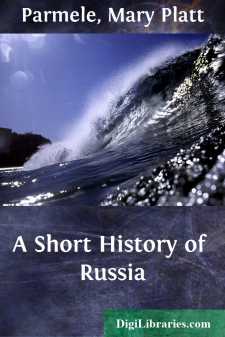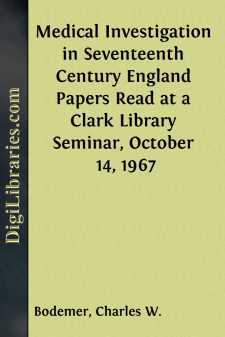History
- Africa 30
- Americas (North Central South West Indies) 50
- Ancient 68
- Asia 58
- Australia & New Zealand 8
- Canada 41
- Caribbean & West Indies 1
- Civilization 20
- Eastern Europe 12
- Europe
- Expeditions & Discoveries 60
- General 77
- Historical Geography 1
- Jewish 9
- Latin America 3
- Medieval 8
- Middle East 13
- Military 248
- Revolutionary 8
- Study & Teaching 5
- United States 353
- Western Europe 56
- World 13
Europe Books
Sort by:
by:
Thomas Carlyle
Chapter 1.1.I. Louis the Well-Beloved. President Henault, remarking on royal Surnames of Honour how difficult it often is to ascertain not only why, but even when, they were conferred, takes occasion in his sleek official way, to make a philosophical reflection. 'The Surname of Bien-aime (Well-beloved),' says he, 'which Louis XV. bears, will not leave posterity in the same doubt. This...
more...
CHAPTER I The topography of a country is to some extent a prophecy of its future. Had there been no Mississippi coursing for three thousand miles through the North American Continent, no Ohio and Missouri bisecting it from east to west, no great inland seas indenting and watering it, no fertile prairies stretching across its vast areas, how different would have been the history of our own land. Russia...
more...
by:
J.R. Green
CHAPTER I. THE EARLIER KINGS OF FRANCE. 1. France.—The country we now know as France is the tract of land shut in by the British Channel, the Bay of Biscay, the Pyrenees, the Mediterranean, and the Alps. But this country only gained the name of France by degrees. In the earliest days of which we have any account, it was peopled by the Celts, and it was known to the Romans as part of a larger country...
more...
To discuss embryological thought in seventeenth-century England is to discuss the main currents in embryological thought at a time when those currents were both numerous and shifting. Like every other period, the seventeenth century was one of transition. It was an era of explosive growth in scientific ideas and techniques, suffused with a creative urge engendered by new philosophical insights and the...
more...
by:
Henry Morley
INTRODUCTION. Again, on behalf of readers of this National Library, I have to thank a poet of our day—in this case the Oxford Professor of Poetry—for joining his voice to the voices of the past through which our better life is quickened for the duties of to-day. Not for his own verse only, but for his fine sense also of what is truest in the poets who have gone before, the name of Francis Turner...
more...
PREFACE. It has been my ambition for many years to write a history of Norway, chiefly because no such book, worthy of the name, exists in the English language. When the publishers of the present volume proposed to me to write the story of my native land, I therefore eagerly accepted their offer. The story, however, according to their plan, was to differ in some important respects from a regular...
more...
by:
Samuel Smiles
Since the appearance of this book in its original form, some seventeen years since, the construction of Railways has continued to make extraordinary progress. Although Great Britain, first in the field, had then, after about twenty-five years’ work, expended nearly 300 millions sterling in the construction of 8300 miles of railway, it has, during the last seventeen years, expended about 288...
more...
by:
Lajos Kossuth
PREFACE TO KOSSUTH'S SPEECHES. Nothing appears in history similar to the enthusiasm roused by Kossuth in nations foreign to him, except perhaps the kindling for the First Crusade by the voice of Peter the Hermit. Then bishops, princes, and people alike understood the danger which overshadowed Europe from the Mohammedan powers; and by soundly directed, though fanatical instinct, all Christendom...
more...
The Acts of Uniformity are incidents in a great movement. They are far from being the most important of its incidents. Their importance has perhaps been exaggerated, and their purport is commonly misunderstood. My object is to place them in their true relation to other incidents. It is useless to study them apart; they cannot be understood except as details of a connected history. I shall confine...
more...
CHAPTER I. JANUARY."Come then, come then, and let us bringUnto our pretty Twelfth-Tide King,Each one his several offering."Herrick'sStar Song. Dedication Festivals—New Year's Day—"Wassail"—Twelfth Night—"King of the Bean"—St. Distaff's Day—Plough Monday—Winter Games—Skating—Sword-dancing. N the old life of rural England few things are more...
more...











